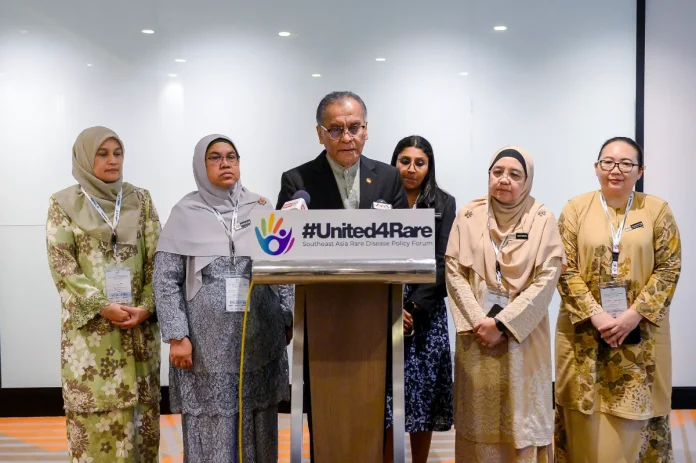Malaysia will table a comprehensive roadmap on Rare Diseases during the Asean Health Ministers Meeting (AHMM) in 2026.
PUTRAJAYA: Malaysia will table a comprehensive roadmap on Rare Diseases during the Asean Health Ministers Meeting (AHMM) in 2026 marking a major step toward coordinated regional action on diagnosis, treatment, and research for rare conditions.
Health Minister Datuk Seri Dr Dzulkefly Ahmad said the roadmap, an initiative led by Malaysia as Asean Chair in 2025, outlined shared priorities among member states to strengthen awareness, healthcare capacity, and sustainable funding for rare disease management.
“This isn’t an easy task, but we need to start discussions to identify ‘low-hanging fruits’ such as reaching common ground on diagnostics, treatment, and building registries.
“Most importantly, we want our efforts to be sustainable in the long run, with proper funding and support among member states,” he told reporters after the Southeast Asia Rare Disease Policy Forum today.
Dzulkefly said Malaysia’s pre-launch of its National Policy for Rare Diseases in August this year is aligned with the World Health Organisation’s (WHO) Resolution on Rare Diseases, a 10-year commitment to ensure equitable access to care and inclusion for patients.
He added that the upcoming roadmap aims to turn regional dialogue into measurable action.
“Asean member states have shown growing interest in collaborating on this agenda, and discussions are already underway.”
Dzulkefly also emphasised that rare disease management requires long-term commitment, especially in areas like genomic research, gene therapy, and precision medicine.
“It’s not just about maintaining patients’ conditions, but ultimately finding curative solutions,” he said, adding that rare diseases, though affecting small numbers, place significant emotional and financial burdens on families.
“Across Southeast Asia, an estimated 45 million people are living with rare diseases, many of whom face delayed diagnosis, limited treatment access and a lack of coordinated healthcare support.”
Dzulkefly cited World Health Organisation Assistant Director-General Dr Jeremy Farrar, who highlighted that rare diseases affect around 300 million people globally, but said the true impact is far greater — closer to 1.2 billion when accounting for parents and siblings sharing the journey.
He also said Malaysia has begun shaping a Southeast Asia Declaration and Action Plan on Rare Diseases, which will serve as the foundation for regional collaboration and equitable access to care.
He added that Malaysia’s proposed Asean Rare Disease Roadmap will focus on four key areas, including early diagnosis, improved access to treatment and care, development of data and national registries, and increasing awareness among healthcare professionals across public and private sectors.
“Malaysia has strengthened diagnostic and referral pathways, enhanced its national rare disease registry, and expanded access to specialised treatments through collaboration with the Higher Education Ministry, the National Institutes of Health and patient organisations.
“Nevertheless, no nation can address the complexities of rare diseases in isolation.
Regional unity and partnership are essential to drive meaningful progress,” he said.
Dzulkefly also urged the region to move “from awareness to action, from dialogue to implementation, and from commitment to measurable care.”
ALSO READ: Malaysia moves to tackle rare diseases, 492 identified so far








